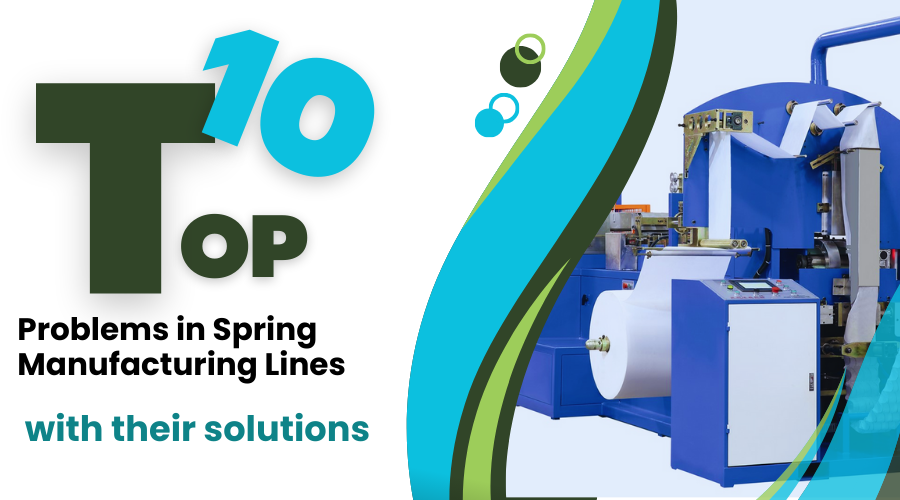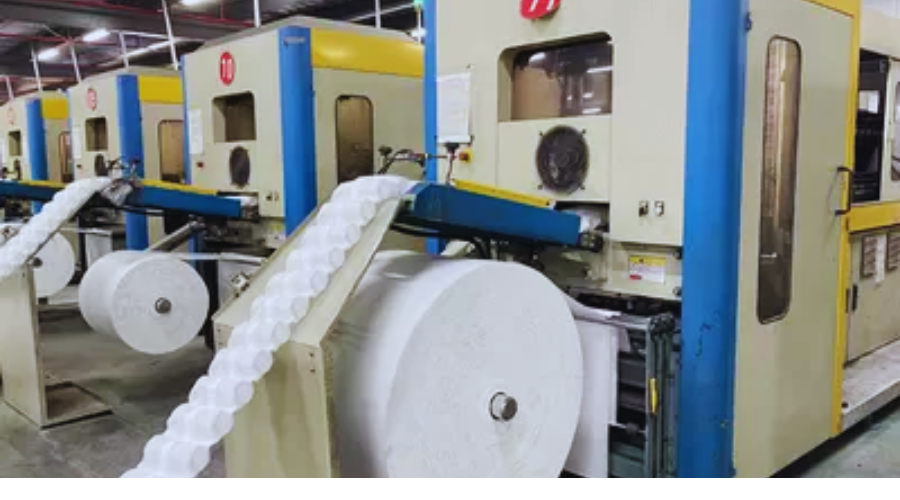
In this exploration of spring manufacturing challenges, we dive into an in-depth examination of issues faced within the industry. Our focus extends beyond identifying problems and delving into innovative solutions that promise to reshape spring production line dynamics for heightened efficiency and unparalleled quality.
The Challenge: Misaligned coils can lead to inefficiencies, affecting the precision and quality of spring production. This issue can arise due to equipment misalignment, wear, or improper setup.
Invest in precision alignment tools that employ advanced technologies to detect and correct misalignments in real time. These tools ensure that coils are perfectly aligned during the production process, mitigating the risks associated with misalignment.
The Challenge: Torsion-related complexities can lead to tangled springs, affecting functionality and durability. Tangles may occur due to wire tension inconsistencies or coiling process errors.
Incorporate advanced torsion testing systems that provide real-time measurements of wire tension and torsion forces. These systems enable precise adjustments, ensuring springs maintain their intended form without unnecessary tangles.
The Challenge: Uneven heat treatment can result in inconsistent spring performance and compromised durability. Variations in temperature during the heat treatment process may lead to variations in spring hardness.
Incorporate cutting-edge heat treatment technologies designed to guarantee consistent temperature distribution throughout the entire length of the spring. This ensures optimal spring strength and longevity, addressing the challenges of uneven heat treatment.
The Challenge: Wire fatigue threatens spring integrity, impacting overall performance and reliability. Fatigue may occur due to repeated stress cycles, leading to structural failure.
Integrate fatigue-resistant alloys into the material selection process. These alloys are designed to withstand repeated stress cycles, extending the life of springs and mitigating the risks associated with wire fatigue.
The Challenge: Surface imperfections can mar springs' aesthetic appeal and functionality. Blemishes may include scratches, dents, or uneven surfaces.
Implement specialized polishing techniques during the finishing process to eliminate surface imperfections. Additionally, enforce stringent quality checks to ensure a flawless surface finish, meeting visual and functional standards.

The Challenge: Springs are susceptible to rust, especially in humid or corrosive environments. Rust can compromise structural integrity and lead to premature failure.
Apply corrosion-resistant coatings to spring surfaces. These coatings act like a barrier for protection, preventing rust formation and enhancing the spring's resilience against environmental factors.
The Challenge: Springs with inconsistent load capacities can disrupt the uniformity of mechanical systems. Variations in load capacity may result from inaccuracies in the coiling process or material inconsistencies.
Incorporate advanced load testing systems that precisely measure and calibrate the load capacities of each spring. These systems enable adjustments to the production process, ensuring uniform load capacities across all manufactured springs.
The Challenge: Misalignment at the ends of springs can affect their performance and integration into mechanical assemblies. End misalignment may occur due to errors in the coiling or finishing processes.
Implement automated end alignment systems that use precision sensors and actuators to correct misalignments during manufacturing. This ensures that the ends of each spring are perfectly aligned, enhancing overall performance.
The Challenge: Inconsistent diameters in springs can lead to compatibility issues in various applications. Diametric variations may result from inaccuracies in the coiling or shaping processes.
Utilize laser measurement technologies that provide accurate and real-time diameter measurements during manufacturing. This allows for immediate adjustments, ensuring consistent diameters in every produced spring.
The Challenge: Inefficient production processes can create bottlenecks, limiting output and delaying deliveries. Bottlenecks may stem from outdated machinery, lack of automation, or suboptimal workflow designs.
Optimize production workflows by identifying and eliminating bottlenecks through process reengineering. Integrate automation to enhance efficiency, reduce production time, and meet increasing demands.
Q1: Can these solutions be implemented in existing manufacturing setups?
Absolutely! Many answers are designed to be adaptable to existing structures, ensuring a smooth transition without massive overhauls.
Q2: Are these technologies cost-effective for small-scale manufacturers?
The evolving landscape of manufacturing technologies has made many of these solutions accessible and cost-effective for small-scale manufacturers.
In the intricate dance of spring manufacturing, acknowledging challenges is just the first step. Embracing innovative solutions transforms these challenges into opportunities for growth, efficiency, and excellence. As you master the art of spring production, remember that each key is a note in the symphony of success, creating springs that meet and exceed standards.